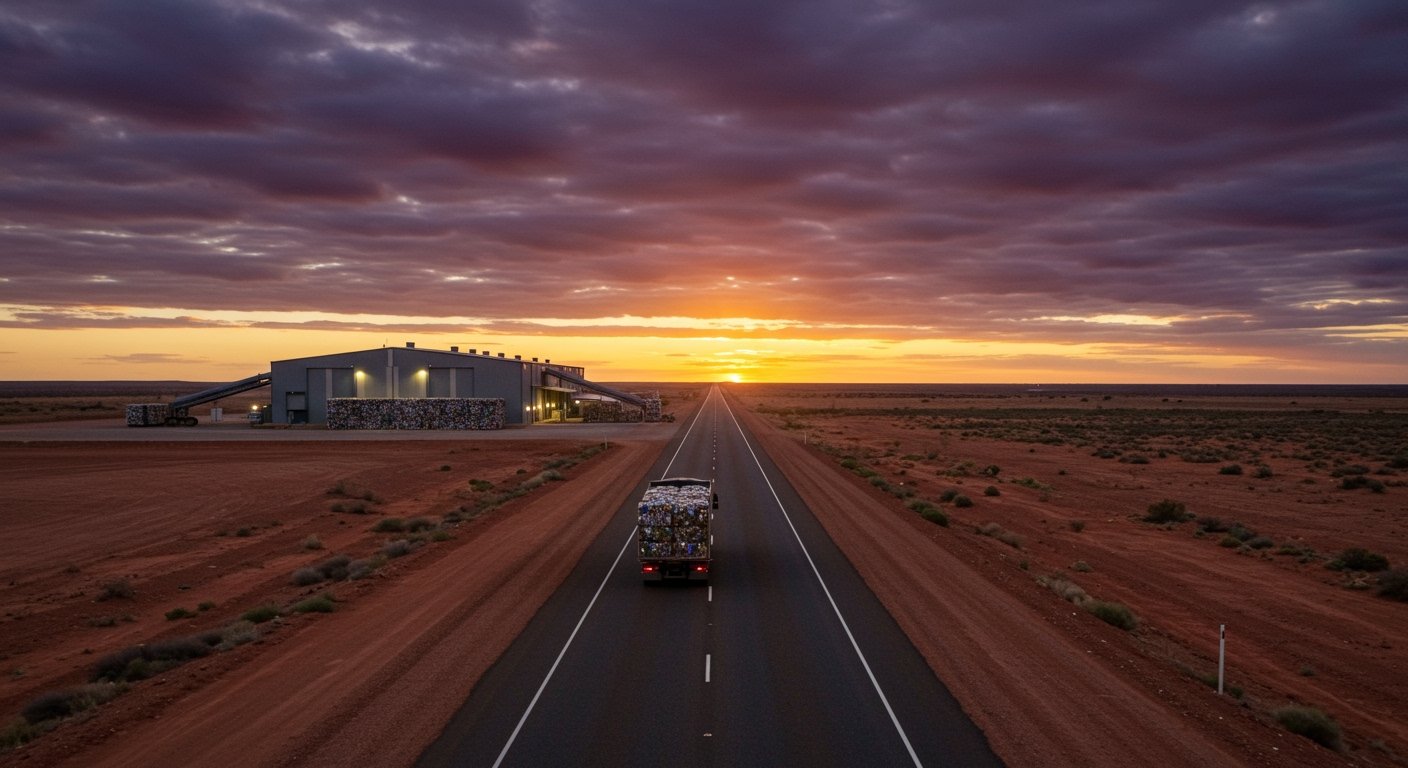Mount Isa, QLD Australia – An editorial featured in the North West Weekly has brought into sharp focus the significant financial strain placed upon ratepayers by the Mount Isa City Council’s Materials Recovery Facility (MRF). The facility, intended to manage recyclable materials across the North West Region covering areas including Boulia, Burketown, Camooweal, Cloncurry, Doomadgee, Hughenden, Julia Creek, Karumba, Mornington Island, Mount Isa, Normanton, and Richmond, is reportedly proving to be a substantial cost centre for the local community.
According to the editorial, the MRF has already accumulated costs totalling approximately $15 million. This initial outlay is compounded by ongoing financial pressures. The facility is projected to drain approximately $2 million annually from council budgets through a combination of operational costs and depreciation.
A key factor contributing to the facility’s financial challenge is the difficulty in generating revenue from the sale of recyclable products. The editorial highlights that high transport costs associated with moving materials from the remote North West region significantly diminish the return on investment, resulting in minimal income to offset the substantial operating expenses.
The Decision Under Scrutiny
The decision to proceed with the costly facility was not unanimous and occurred during a special meeting held on Monday, May 8, 2023. Six councillors were present for this critical vote. The meeting agenda required a resolution on the future of the MRF project, which at that stage involved significant financial commitments.
Council was faced with a difficult choice: proceed with the facility or halt the project. Terminating the project was assessed to incur immediate costs of approximately $3 million due to equipment that had already been ordered.
The vote revealed a split among the six councillors present. Three councillors – Peta MacRae, Kim Coghlan, and Paul Stretton – voted against proceeding with the Materials Recovery Facility. Their opposition suggested concerns about the project’s viability or financial impact.
Conversely, three councillors – George Fortune, Phil Barwick, and Mayor Danielle Slade – voted in favour of moving forward. With the vote tied at three votes for and three against, the final decision rested with Mayor Danielle Slade, who exercised her casting vote to approve the project.
Council’s Rationale at the Time
The council’s assessment prior to the May 8, 2023, decision considered several factors that weighed into the vote. These considerations aimed to balance the known financial exposure against potential future costs and obligations.
A primary factor was the approximately $3 million financial exposure related to terminating the equipment contract. Halting the project would have immediately resulted in this cost without any facility to show for it. By proceeding, the council aimed to avoid this sunk cost becoming a complete loss.
Additionally, the council had received federal grant funding towards the project. Proceeding allowed them to utilise this funding, whereas abandoning the project might have jeopardised the retention or future eligibility for such grants.
Furthermore, the council considered the implications of the state government’s waste levy. Implementing a recycling facility was seen as a way to mitigate the impact of this levy, which would otherwise apply to all waste sent to landfill. Not proceeding with recycling would likely have resulted in increased waste levy costs for the council, a cost that could also ultimately impact ratepayers.
Financial Burden on Ratepayers
Despite the rationale presented at the time of the decision, the North West Weekly editorial concludes that the Materials Recovery Facility is indeed proving costly, placing a significant burden on Mount Isa ratepayers.
The approximately $15 million initial investment and the projected annual drain of around $2 million, coupled with minimal returns from the sale of recyclables due to high transport costs, represent a substantial financial undertaking for a regional council and its constituents. The editorial’s perspective highlights the challenge of implementing such infrastructure in remote areas where logistical costs can outweigh the potential benefits of resource recovery, at least in the short to medium term.
The ongoing financial performance of the MRF remains a key issue for the Mount Isa City Council and the residents of the North West Region it serves. The editorial serves as a public accounting of the costs incurred and projected, underscoring the need for transparent management and communication regarding the facility’s impact on local finances.


















